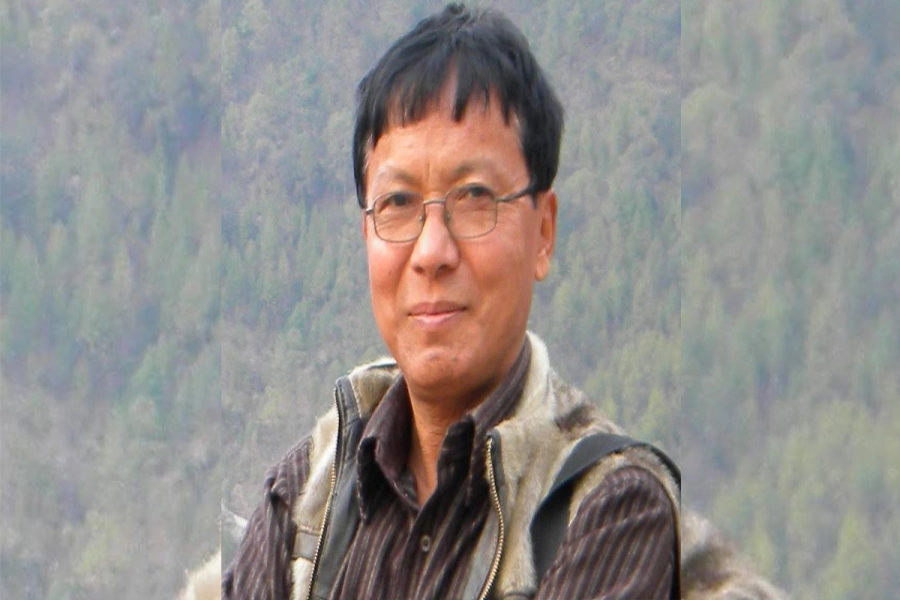KATHMANDU, May 9 : In what could be seen as a growing rift between the executive and legislative branches on one hand and the judiciary on the other, following the impeachment motion brought against the chief justice, Prime Minister Pushpa Kamal Dahal and Speaker Onsari Gharti Magar skipped the Law Day function on Tuesday.
Law Minister Ajay Shankar Nayak, who is ex-officio member of the Judicial Council, and Attorney General Raman Shrestha were also not to be seen at the function hosted by Chief Justice Sushila Karki.
According to Gobinda Acharya, the prime minister’s press advisor , the head of the executive branch could not attend the function as he was busy in inter-party meetings and administering the oath of office and secrecy to newly-appointed state ministers from Nepal Loktantrik Forum.
The Law Day function at the premise of the Supreme Court began at 4 pm. While a meeting with Madhesi leaders concluded in the morning, Prime Minister Dahal had scheduled the oath-taking function for 5 pm at his official residence at Baluwatar, apparently to avoid the Law Day function.
Many leaders skip global, G20 summits for their own reasons, su...

Asked why Speaker Gharti Magar did not attend the Law Day function, her press advisor Basudev Sharma said she had a prescheduled program at the Trauma Center in Kathmandu. “The speaker had a prescheduled function organized by the Raute Community at the Trauma Center. As the chief guest, she stayed at the function from 4 pm to 6 pm,” said Sharma.
Sharma said that the speaker was unable to attend the Law Day function last year also because of a House meeting.
Law Minister Nayak said he could not attend the function Tuesday as he had to fly to his home district earlier in the day. “I had a prescheduled function in Siraha when I received the invitation,” Nayak told Republica over the phone from Siraha.
Senior ministers in the cabinet except Communications Minister Surendra Karki were also not to be seen at the function.
The rift between the executive and the judiciary began after the apex court overruled the government’s decision to appoint Jaya Bahadur Chand as Nepal Police chief. The rift spread to the legislative branch also after the apex court nullified the impeachment motion registered jointly by the ruling Nepali Congress and CPN (Maoist Center). Chief Justice Karki, who was suspended after the impeachment motion was registered on April 30, resumed her office following the court ruling on May 5.
Senior leaders of the NC and the Maoist Center, while expressing their dissatisfaction with the court ruling on the appointment of the police chief, have been stating in public that the SC breached the jurisdiction of the executive . After a single bench of Justice Cholendra SJB Rana nullified the impeachment motion against Karki, Speaker Gharti Magar complained that the Supreme Court had infringed the prerogatives of parliament.
President Bidya Devi Bhandari and Vice President Nanda Bahadur Pun, however, were present at the function. Chief Justice Karki welcomed them with bouquets.
Addressing the function, Chief Justice Karki pointed out that all three branches of government should play their respective roles, based on the principle of separation of powers. “The system we have followed is the system of constitutional supremacy. Constitutional supremacy can be maintained only if each government organ and agency works towards promoting the maximum interests and welfare of the people while remaining within their respective jurisdictions,” she said.
Karki also said that all concerned should exercise due sensitivity to avoid seeing these organs as competitors and not take any steps based on prejudice and personal bias. “As the constitution has entrusted the judiciary with the power and responsibility of final interpretation of the constitution and laws, I expect cooperation and goodwill from all concerned to help the judiciary fulfill this constitutional responsibility,” said Karki, hinting at the row between the judiciary and the executive and legislative branches.







































